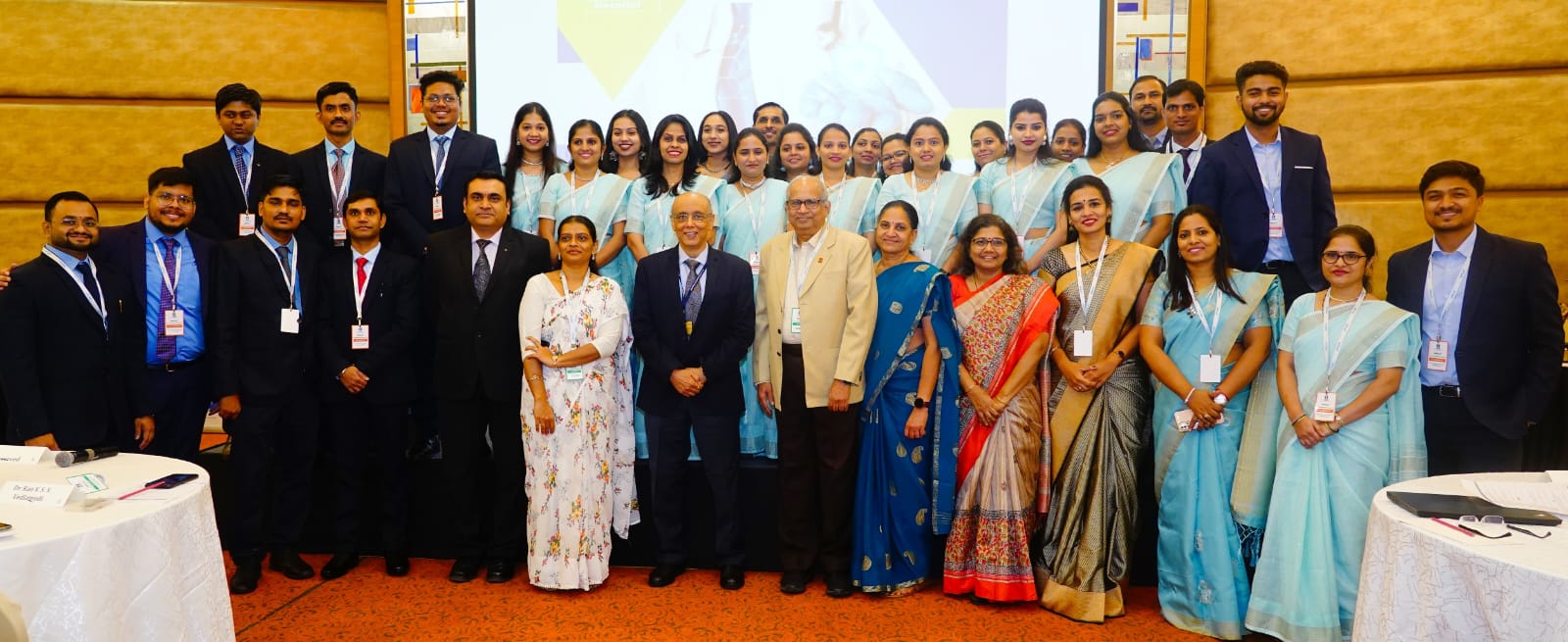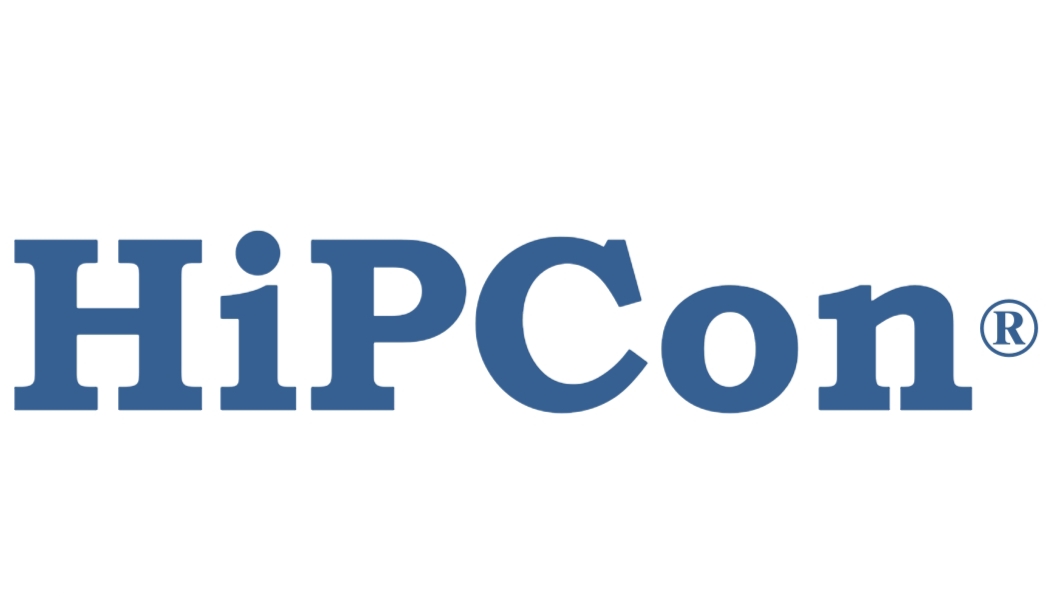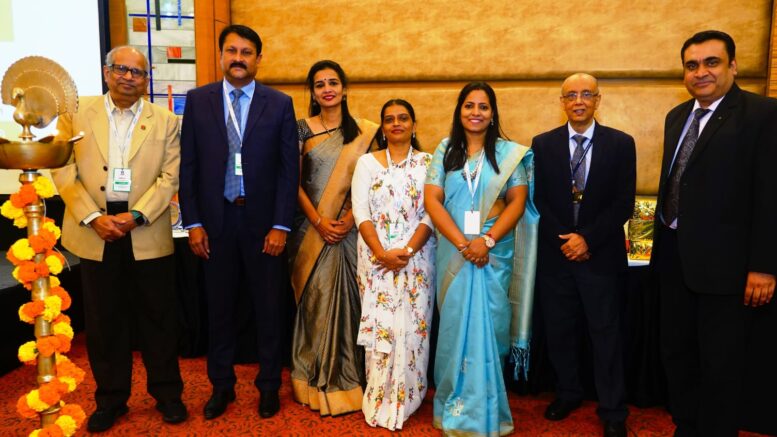
Team HipCon 2024 Dignitaries and Speakers

HipCon2024 – The 10th Hiranandani Pharma Conclave
MUMBAI, 22nd JANUARY 2024 (GPN): The 10th Hiranandani Pharmacy Conclave (HipCon 2024) was held recently in Mumbai with an initiative of Dr L H Hiranandani Hospital, Mumbai. The participants at a day-long Conclave included Pharmacists, Clinical Pharmacists and Doctorate in Pharmacy, Pharma Students from across Maharashtra, and a few from other states.
‘HiPCon 2024’ was a day-long conclave organized to share and exchange knowledge on the importance of Pharmacy services and Practice in hospitals. This year’s theme of conclave was To optimize the patient’s health-related quality provided by the Pharmacist. The pharmacist along with the prescriber can best improve the situation by making appropriate use of antibiotics followed by professional associations and patient communities. A periodic assessment of antibiotic use for the treatment of infection should be performed to determine the quality of antibiotic use.
The conclave was formally inaugurated at the hands of Chief Guest Dr Rao V. S. V. Vadlamudi, Professional Secretary of the International Pharmaceutical Federation (FIP) & WHO with National Pharmaceutical Association of the South East Asian Region (SEAR) in the presence of Dr Sujit Chatterjee, CEO – Dr L H Hiranandani Hospital, and Ms Manisha Pal– Pharmacy In-charge and Organizer of HiPCon 2024.
The renowned speakers from various fields related to Quality & Patient safety included Chief Guest Dr Rao V.S.V. Vadlamudi, Mr Joy Chakraborty – CEO, P D Hinduja Hospital, Ms Manjiri Gharat – Vice President International Pharmaceutical Federation (FIP) & Vice president of Indian Pharmaceutical Association (IPA), Dr Lallu Joseph – Secretary General of the Consortium of Accredited Healthcare Organizations (CAHO), India., Dr Zarine Khety – Heading Purchase Dept at Saifee Hospital, Dr T Vithya – Prof and Head of Department of Pharmacy Practice, Al Ameen College of Pharmacy, Mr. Sandip Kumar Dey – Chief Business Officer for Akumentis Healthcare Ltd & Nicholas Healthcare Ltd and Dr Austin Fernandes – Psychiatrist at Dr L H Hiranandani Hospital.
After formally inaugurating the Conclave at the hands of Chief Guest Dr Rao V. S. V. Vadlamudi, Professional Secretary of International Pharmaceutical Federation (FIP) & WHO with National Pharmaceutical Association of the South East Asian Region (SEAR) in the presence of Dr Sujit Chatterjee – CEO, Dr L H Hiranandani Hospital, and Ms Manisha Pal– Pharmacy In-charge and Organizer of HiPCon 2024.
Dr Rao V. S. V. Vadlamudi spoke on educational systems, and how the Pharma D course was introduced 15 years ago. How educational front not only focuses on scientists but also looks into Pharmacy practitioners. These Pharm D (Clinical Pharmacists) have driven the equality, equality, and even affordability distribution of medicines at various levels of healthcare (e.g. Ayushmaan Bharat, Jan Aushadi scheme, and many more). Well implemented & very well the essential medicines are reaching all across the country. Also highlighted how important it is to give all these essential medicines under the proper advice and care of Pharmacists. Most importantly he focused on the accessibility of medicines where he quoted “Increase to accessibility of medicines also increases the incident of Medication errors”. Exposure to antibiotics increases the incidence of
Antimicrobial Resistance. It is important to monitor, record, and report all these drugs. If these process of monitoring, recording, and reporting is skipped we won’t be able to know what is the impact of these drugs on our health system. In every care-given setting Pharmacists are responsible for ensuring the medications are given to produce maximum outcomes by reducing the harm i.e. – increasing safety. To achieve all this, Pharmacists need to audit their own skill sets, own capability. If needed undergo training, set sustainable goals, and map our competency, our requirements as per Pharmacy Practice is concern. Mainly focus on our educational system to make pharmacists competent to provide pharmaceutical care as per our country’s requirements.
Dr Sujit Chatterjee addressed the delegates about the stunning role of Pharmacists towards society and also acknowledged each Pharmacists contribution towards Patient Safety & Quality of services. He emphasized each Pharmacist has to identify what is the demand and train own self accordingly to deliver pharmaceutical care.
Manisha Pal – Pharmacy In-charge at Dr L H Hiranandani Hospital & organizer of HiPCon 2024, addressed the evolving role of the pharmacist worldwide whereby there has been a shift from purely compounding roles with the extension of roles to medication therapy management. How in hospital pharmacy practice, the various roles of a pharmacist are intertwined making the pharmacist a health care professional. Pharmacy practice is to provide medication as well as other health care products and services at affordable pricing and effective financing and to help people and society to make the best use of them.
Mr Sandip Dey working as Chief Business Officer for Akumentis Healthcare Ltd & Nicholas Healthcare Ltd covered the topic Indian Regulation & Guidelines for Drug Market. Mr Dey presented the complete picture of Pharma industry – its size, growth rate, prospect and key players in the industry. He highlighted on how Pharmacovigilance is important in assuring the safety of medicines and protecting patients from harm. He explained the role and functions of The Central Drugs Standard Control Organization (CDSCO) which is the Central Drug Authority for discharging functions assigned to the Central Government under the Drugs and Cosmetics Act. CDSCO headed by the DCGI is responsible for the drug regulatory framework in India. He also explained which authorities issue various licenses at different level.
Ms Manjiri Gharat – Vice president International Pharmaceutical Federation (FIP) & Vice president of the Indian Pharmaceutical Association (IPA) highlighted her views on topic Infectious Disease Pharmacists: Imperative for mitigating AMR and fostering AMS. According to Ms Manjiri for AMS at the healthcare facility level, active involvement of clinical leaders and cross-specialty engagement are crucial for its success, particularly the role of the clinical pharmacists. India is one of the few countries worst hit by AMR-antibiotic-resistant neonatal infections alone are responsible for the deaths of nearly 60,000 newborns each year. Globally, India tops the list of countries with the highest antibiotic consumption and highest AMR occurs. Irrational Use is the central driver of AMR in our country. According to Ms Manjiri, the Key Strategy to optimize antimicrobial use is to create awareness/understanding of AMR through effective communication, education, and training, reduce the incidence of infection through sanitization, hygiene, and infection prevention measures, Optimize the use of antimicrobial agents in human and animal health. Ms Gharat also highlighted a new initiative taken by the Indian Pharmaceutical Association (IPA), which is the Infectious Disease Fellowship Project. The primary aim of this initiative is to develop and establish the concept of ID Pharmacists in India by training pharmacists who can effectively contribute.
Dr Zarine Khety heading Purchase Dept at Saifee Hospital spoke on topic “Healthcare Supply Chain Challenges and How to Avoid Them”, she focused on how the supply chain for healthcare is distinctive to the distribution networks of any other industry.
Dr Austin Fernandes a psychiatrist at Dr L H Hiranandani Hospital with more than 10 years of experience in the field covered the topic “ Invest In Selfcare”, From pampering to medical check-ups and to indulging occasionally …you need to keep in focus. Here Dr Fernandes explained that Self-care refers to activities undertaken to enhance energy, restore health, reducing stress. As healthcare workers how we can overcome stress and look after ourselves Doctor asks us to take breaks, give yourself “me time.” Learn that taking time to yourself for rejuvenation and relaxation is just as important as giving time to other activities.
Dr. Vithya Thirumoorthi who is Professor and Head of Department of Pharmacy Practice, Al Ameen College of Pharmacy, Bangalore elaborated on Clinical Pharmacist Intervention in Resolving Drug Therapy Problems, clinical pharmacists perform various activities depending on the available resources and the health system, and TDM represents one of the fundamental responsibilities. According to Dr Vithya, Clinical Pharmacists should work in coordination with the doctors, nurses & pharmacists to achieve the goal of Safety in Patients. Clinical pharmacists participation in ward rounds with physicians and provide their suggestions or recommendations wherever needed.
Mr Joy Chakraborty, Chief Operating Officer, Hinduja Hospital covered the area which is widely recognized by WHO i.e. – Patient Engagement – Medication Safety. Mr Chakraborty highlighted how patients could make essential contributions to their safety and prevent errors and adverse events. Doctors have too little time to discuss medications with the patient. Patients leave without vital information such as risks, side effects, or when to stop the medication. Some medicines could lead to addiction or fatal errors if not well explained so Pharmacists need to take the lead and explain patients and patient relatives all about the medicines he is going to take.
Dr Lallu Joseph – Secretary General of the Consortium of Accredited Healthcare Organizations (CAHO), India. Dr Lallu spoke on a very important topic- Incident Analysis – Tool Towards Creating the Culture of Safety. She focused on why analysis of incidents is important, it is a process that helps organizations investigate the cause of an incident, determine its impact, and identify strategies to prevent similar occurrences in the future. She further mentioned a strong statement, A strong safety culture encourages reporting and transparency, which facilitates learning from incidents and near-misses. An incident report should have proper data collection. The content of the Incident report should have the proper Date and time of the report, the Date and time of the incident, and Where did it happen? Who was involved?, Category (Near miss/harm/sentinel event), Description (just facts- no personal opinion, no solutions) & Immediate action taken. This content will help to identify the proper root cause of the incident. She further mentioned that 25 to 50% of medication errors are not reported because of Blaming individuals instead of the system, Concerns over the consequences of reporting, Fear of punishment, Blaming nurses if patients are harmed, Incompetence, Too long and time-consuming reporting, Perceiving medication error as not important, No need to report if no patient is harmed.
There were numerous posters received for the Poster presentation competition. The poster presentation is the easiest way to create awareness and give a message to society.
The conclave concluded with a vote of thanks to all speakers and participants by Dr Manish Gupta – Medical Director at Dr L H Hiranandani Hospital.
To know more about HiPCon 2024 visit: www.lhh-hipcon.com
Website: www.hiranandanihospital.org


Be the first to comment on "PharmaConclave2024 calls on Pharmacists to be competent to provide pharma care to suit our country’s requirements"